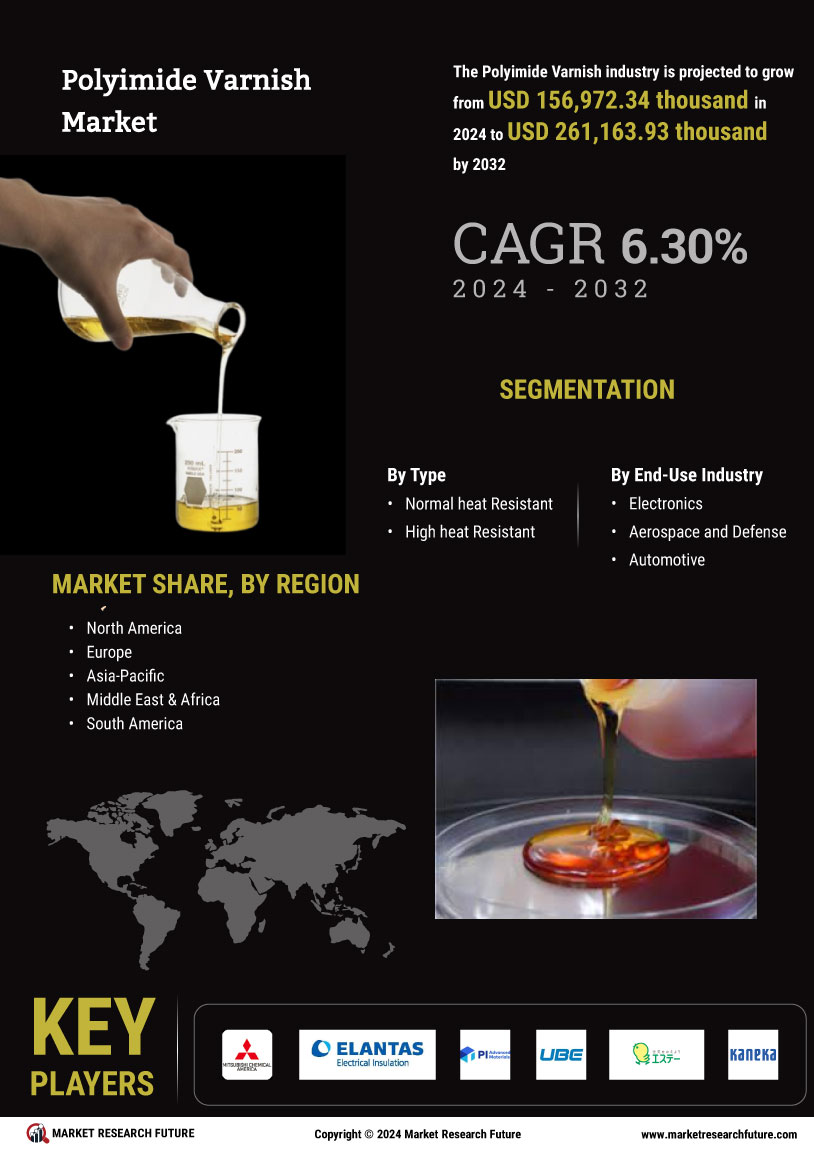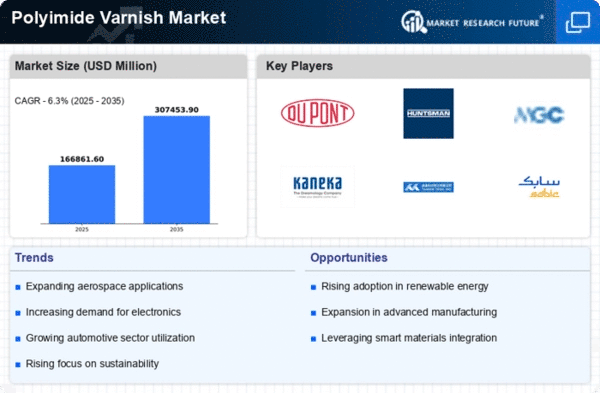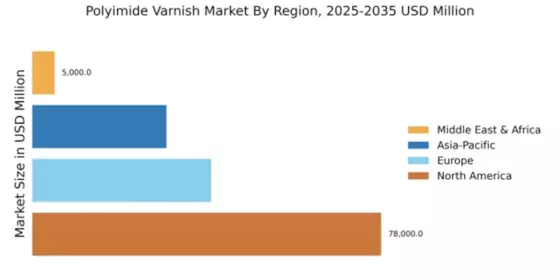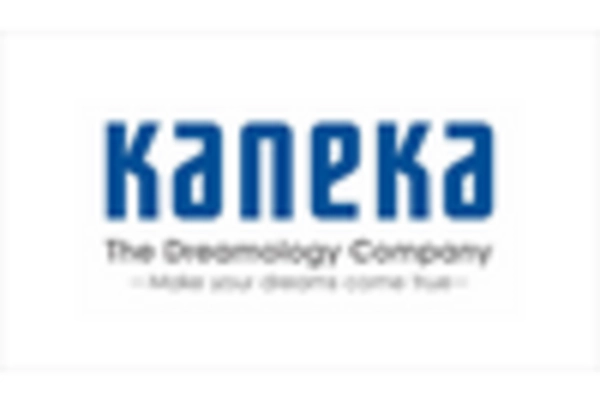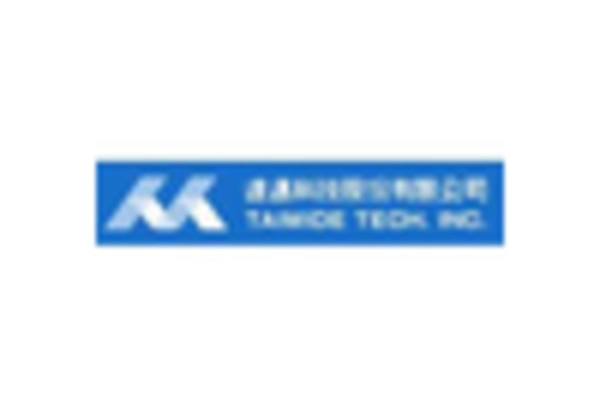Growing Demand in Electronics
The Global Polyimide Varnish Market Industry is experiencing a surge in demand driven by the electronics sector. Polyimide varnishes are essential for insulating and protecting electronic components, particularly in high-performance applications such as aerospace and automotive electronics. As the electronics industry expands, particularly in regions like Asia-Pacific, the need for reliable insulation materials increases. This trend is reflected in the projected market value of 1250 USD Million in 2024, with expectations to reach 2750 USD Million by 2035, indicating a robust growth trajectory. The compound annual growth rate of 7.43% from 2025 to 2035 further underscores the increasing reliance on polyimide varnishes in electronic applications.
Expansion of Automotive Sector
The Global Polyimide Varnish Market Industry is significantly influenced by the expansion of the automotive sector, particularly with the rise of electric vehicles (EVs). Polyimide varnishes are integral in providing insulation and protection for various automotive components, including electric motors and batteries. As the automotive industry increasingly adopts advanced materials to enhance vehicle performance and efficiency, the demand for polyimide varnishes is likely to grow. The market is projected to reach 1250 USD Million in 2024, with a robust growth forecast indicating a potential market value of 2750 USD Million by 2035, reflecting the automotive sector's shift towards high-performance materials.
Innovations in Material Science
The Global Polyimide Varnish Market Industry is driven by continuous innovations in material science. Researchers are developing new formulations of polyimide varnishes that offer enhanced properties such as improved thermal stability, chemical resistance, and lower viscosity. These advancements are crucial for meeting the evolving demands of various industries, including electronics, aerospace, and automotive. As new applications emerge, the market is likely to expand, with a projected compound annual growth rate of 7.43% from 2025 to 2035. The ongoing research and development efforts in material science could lead to the introduction of next-generation polyimide varnishes, further propelling market growth.
Rising Focus on Renewable Energy
The Global Polyimide Varnish Market Industry is poised to benefit from the rising focus on renewable energy sources. As the world shifts towards sustainable energy solutions, the demand for high-performance materials in wind and solar energy applications increases. Polyimide varnishes are utilized in the manufacturing of components such as wind turbine blades and solar panels due to their excellent thermal and electrical properties. This growing emphasis on renewable energy is expected to drive market growth, contributing to the overall market value projected to reach 2750 USD Million by 2035. The increasing adoption of renewable technologies may further enhance the demand for polyimide varnishes.
Advancements in Aerospace Technologies
The Global Polyimide Varnish Market Industry benefits significantly from advancements in aerospace technologies. Polyimide varnishes are favored for their thermal stability and resistance to harsh environments, making them ideal for aerospace applications. As the aerospace sector continues to innovate, the demand for high-performance materials, including polyimide varnishes, is likely to rise. This is particularly evident in the development of next-generation aircraft that require materials capable of withstanding extreme temperatures and pressures. The anticipated growth in this sector contributes to the overall market expansion, aligning with the projected increase in market value to 2750 USD Million by 2035.
